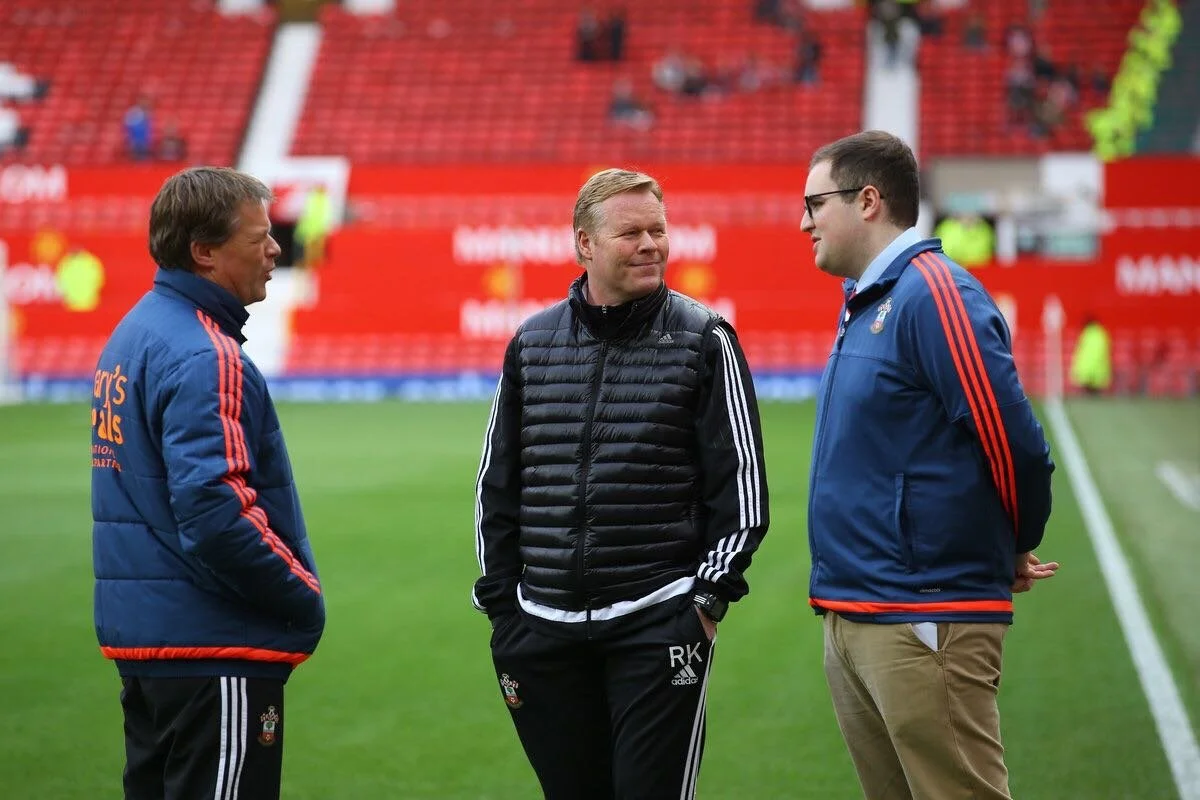1. Launch
I am beyond excited to announce my new venture, The Player Care Group, a new consultancy business specialising in Player Care, Wellbeing and Team Operations. I have thoroughly enjoyed my time at my three clubs and feel like I’ve learnt a huge amount over that time which I’m now excited to share with you.
Player Care is a new industry, though there have been Player Liaisons for over 30 years in some Premier League Clubs. Lorna McClelland of Aston Villa and Bill Ellaby of Everton were the early pioneers, though I do believe a major turning point was when Haydn Roberts created the first Player Care department at Manchester City in 2009 that the industry changed forever. For the first time, a club had dedicated the resources and staffing to an area that had before been left to either the captain, the players themselves or a single hard working individual like Lorna & Bill. I’m forever grateful to all 3 of them for spending time with me when I was first starting out in the industry, and I’ve tried to emulate them in my approach now.
I remember being hired by Southampton FC to be their first Player/Team Liaison Officer from the American second division club, Indy Eleven, and feeling a sense of awe. My last game for the Indy Eleven was a home game in the US Open Cup vs the Dayton Dutch Lions – within 6 months I would be on the bench at Old Trafford as we beat Manchester United 1-0. The fact that my first game for Southampton was an 8-0 win was a sign of things to come, in fact the whole spell under Ronald Koeman was one of those periods you look back on and only now realise how incredible it was what the team achieved in those seasons.
Ronald had asked for a “Team Manager”, a role traditionally found across Europe rather than in England – tending to be a wider role than that of Player Care – and I’m grateful to Les Reed & Ros Wheeler for remembering me from my brief internship with Southampton’s famed academy the year before to offer me the job. The club motto at the time was “Potential into Excellence” and that really was personified throughout the club, with them looking to a former intern for a key role in the 1st team rather than looking externally.
The first season was tough as there was no blueprint – I was left to figure out the role for myself which I enjoyed. For me, the first thing to do was gain trust with the playing squad. Kelvin Davis was captain at the time and had done a great job of looking after the players, but didn’t have the time to really focus on some of the more administrative tasks. I remember my first “win” being getting a foreign player a new license and sorting out a hold on a different player’s Amazon account after they’d both struggled for weeks on these tasks. I was offered cash, but declined and asked instead if they could talk loudly in the changing room about how much I’d helped. Within a month or two I was inundated with things to do and I thoroughly enjoyed it.
I struggled early on with my time management, prioritising the work and my attention to detail – I even failed my probation initially. A quote from my internal review in 2014 states “We discussed if the job is actually right for Hugo and have agreed that we will continue to review this whilst also looking at other options that may be available within the company particularly in the Sponsorship department.”
Strong words, but ones that meant I needed to improve quickly. Ronald had played for & managed some of the biggest clubs in the world, so had high standards. Certainly there were times when he grew frustrated with me, with my lack of knowledge and my naivety, but he could see that I cared and that I worked hard. He was a man of high standards and pushed me harder than any manager I’ve worked for – it certainly wasn’t easy but I’m grateful to him for that.
Over time I grew in confidence and gained the players trust - the main difficulty I faced was transitioning from doing odd jobs for people into putting in place systems, policies, organisation to make my time as efficient as possible. I found myself doing the same jobs over and over, but as I was on my own it was hard to get the time needed to plan, so I was often reactive rather than proactive. I struggled with a work/life balance but at the time I felt I was so lucky to be there that I’d do anything to impress. After I became more settled, passed my probation and started hearing positive reviews, I really settled into the role and started to love it…
I will use this blog to talk more generally about my journey, my philosophy and my way of doing things. I am also more than happy to talk to you about your organisation and how I may be able to add value with my processes, philosophy and way of doing things – please get in touch!

